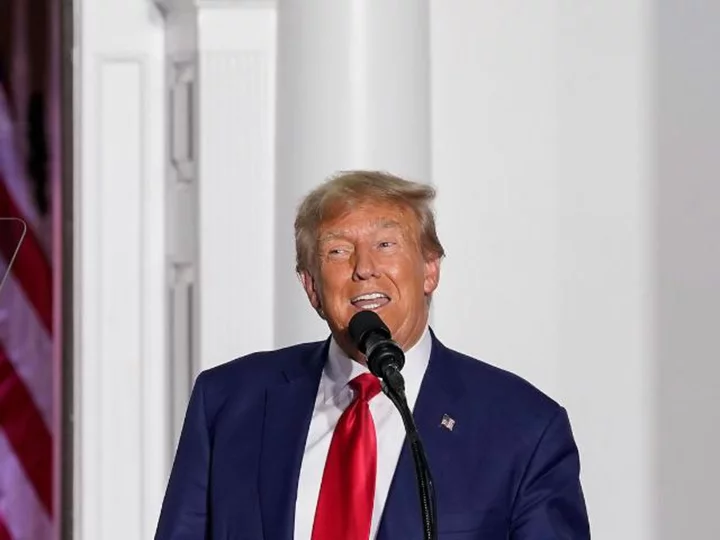Former president Donald Trump has repeatedly compared his case to the Hillary Clinton email probe, claiming unfair treatment.
He did so most recently on Tuesday when Trump said he was the victim of a politicized Justice Department because he was indicted on charges of illegally retaining classified documents and obstructing the federal investigation into his conduct, while his 2016 opponent, Hillary Clinton, didn't face charges from her own classified documents scandal, stemming from her use of a private email server to conduct government business while she was secretary of state.
Trump claimed Clinton had a "deliberate intention" of violating records retention laws and that "there's never been obstruction as grave" as what she did to undermine her own FBI probe in 2015-2016. He also said, "Hillary Clinton broke the law, and she didn't get indicted" because "the FBI and Justice Department protected her," although there isn't any evidence that their decision-making was tainted by politics.
Facts First: This is an inaccurate and self-serving comparison. Investigators saw problems with how both Trump and Clinton handled classified material, but there are several key differences between their cases. For starters, Trump mishandled far more material. Also, he was charged with knowingly breaking the law and obstructing the investigation, while the FBI concluded that Clinton didn't act with criminal intent.
Former FBI Deputy Director Andrew McCabe, a CNN contributor who oversaw the Clinton email probe, explained how that was "very, very different" from Trump's case in an interview Monday with CNN's Dana Bash.
Investigators found 52 email chains on Clinton's private server that contained references to information "that was later deemed to be classified," McCabe said. Only eight of those chains mentioned "top secret" information, the highest level of classification. And the email chains did not have "stampings" on them that would've indicated at the time that the material was classified.
Compare that with Trump, who took more than 325 classified records to Mar-a-Lago after leaving the White House, including at least 60 "top secret" files. These were full documents with "headers and footers" and cover sheets "indicating they were some of the most classified materials we have," McCabe said.
Another big difference is that Trump is facing six obstruction-related charges. Prosecutors say he conspired to defy a grand jury subpoena demanding the return of all classified documents, and that he misled his attorneys who were trying to comply with the subpoena.
Despite Trump's claims in his speech, prosecutors never accused Clinton of undermining their probe. Clinton gave a voluntary interview to the FBI and she could have been prosecuted for lying if she made any false statements. The FBI later concluded that there was not "clear evidence" that Clinton "intended to violate laws," and that charges weren't warranted without any evidence of obstruction.
"Should it have happened? No," McCabe said of Clinton's private email server. "But what we didn't have was evidence that Hillary Clinton had intentionally exchanged or withheld classified information."

